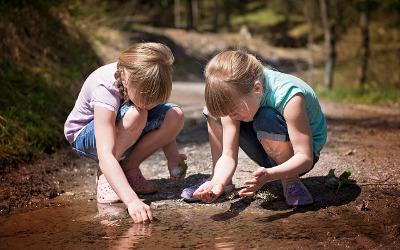£922,000 grant for transforming education through haptic touch experiences

Professor Advaith Siddharthan's new project, 'Feeling the Untouchable: Haptic touch experiences for naturalistic learning’ has just received a £922,000 grant through round one of UKRI’s highly competitive cross-council responsive mode scheme to explore how children could experience and learn about the natural world through touch. Spanning two years, this project is poised to make a significant impact on sensory learning and inclusivity within educational environments. The project is a collaboration with Imperial College London and the University of Edinburgh.
By integrating tactile experiences into the learning process, the project seeks to foster a deeper connection between students and their environment, making science education more engaging and inclusive. A significant component of the project is the development of digital haptic interfaces to allow touch-based science learning in the classroom as well as outdoors. Such hands-on experiences will integrate seamlessly into their education, making abstract concepts such as electromagnetic forces and fields more tangible and understandable. This technology will also enable children with visual impairments to learn through touch alongside their sighted counterparts, thereby also promoting inclusivity and accessibility in education.
Success for "Feeling the Untouchable" would be measured through qualitative improvements in students' engagement and attitudes toward science and nature. Periodic surveys students and their teachers will assess these changes. Additionally, the project aims to inspire long-term interest in science and the natural world and changes in learning approaches among students, though these impacts may be more challenging to quantify directly. The project team will collaborate with partners, including Sight Scotland, to develop and implement the digital haptic interface in an inclusive manner.
Feeling the Untouchable launches in October 2024 and aligns with the University’s Open Societal Challenges platform. Professor Siddharthan said, “The project seeks to address societal inequities around access to engaging science learning and outdoor experiences of nature. It advocates for a bottom-up, inclusive approach, allowing schools to adapt their grounds to support nature and their teaching methods to support scientific inquiry and creativity.”
By reclaiming the value of touch and integrating it into the learning process, the project promises to make science more accessible, engaging, and relevant to students' lives, ultimately fostering a deeper connection with the natural world.
Contact our news team
For all out of hours enquiries, please telephone +44 (0)7901 515891
Contact detailsNews & articles

OU researchers lead international advances in planetary protection
Open University researchers are leading international advances in planetary protection, helping ensure that space exploration is safe, sustainable, and scientifically rigorous.